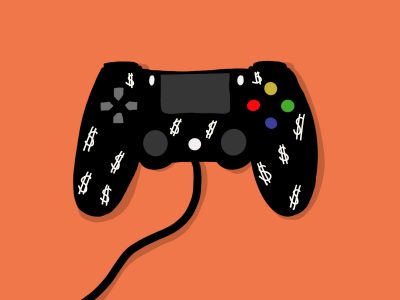To the uninitiated, few jobs sound as glamorous as that of the professional esports player. You get to play video games all day and are showered in money, fame and accolades. What more could you want?
If only it were that simple.
As if attaining professional-level skill wasn’t hard enough in the first place, even those who make it to the majors have had trouble with their teams.
The skilled and lucky minority of players who made it into the Overwatch League — the professional esports league for Blizzard Entertainment’s 2016 first-person shooter game Overwatch — have definitely experienced their fair share of hardships with management.
Fans will remember the case of the Vancouver Titans, when a fan-favorite squad of Korean players was mistreated by their parent organization, a group that is also in charge of the NHL’s Vancouver Canucks.

The original Titans lineup — known then as “RunAway” — had a legendary Cinderella story before joining the league, and their dominance continued for their first season in 2019 when they made a Grand Finals appearance.
Around May of 2020, however, the team looked uncharacteristically weak. Rumors swirled, and that month, the Titans’ entire roster was let go. Anonymous leakers told esports journalists that the split was a long time coming, alleging contract disputes, subpar housing and training facilities and a lack of translators or support staff to acclimate players to their new surroundings.
The Titans’ management did not treat COVID-19 as an imperative to give their players more support. Instead, it was “more than happy to use the global pandemic as an excuse to cut their losses,” according to one source.
Earlier this year, players for the Los Angeles Valiant, an Overwatch League esports team, had their own struggles with management.
Nursing an interest in dissociating from Overwatch, Valiant management decided late last year to relinquish management of the team to a Chinese company for a year, likely attempting to make inroads into the game’s massive fanbase there.
Following this, Valiant decided to release its entire existing roster.
While some lucky former Valiant players have found new teams, most have been forced to coach or play in the minor leagues. One has left the scene entirely to complete the mandatory military service required of all adult Korean men.
Community figures deservedly used their harshest venom on the decision, calling it a “disaster” and “ruining esports careers.”
Prospects seem equally grim for Valiant’s newly signed replacements. Even fans in the team’s new Chinese target audience are not optimistic, expressing pessimism on Weibo, a Chinese social media platform.
How, then, could these disasters be prevented?
A players’ union would be one major step forward.
Players’ unions are commonplace in traditional sports — players in the MLB, NHL, NFL and NBA, to name a few, already have them — and have gone a long way in their respective games toward securing labor protections for their players.
The MLB Players Association won salary increases and free-agency rights for baseball players, and the NBA Players Association is responsible for establishing pension plans and the mere existence of a minimum wage in the league.
Meanwhile, esports are still extremely young, stuck in a crisis for legitimacy. No players’ unions currently exist in the industry.
Indeed, esports law expert Harris Peskin explained that esports teams are in a precarious financial situation where they typically operate at a loss. For this reason, league owners would almost certainly respond to unionization with new measures to cut their losses. These could include a wage cap or a league-wide draft.
At the very least, union action could have ensured fair compensation of Valiant players after this injustice.
Teams are only obligated to give players 30 days worth of pay — or equal to however many days are left in the season — if they terminate a season-long contract “without cause,” according to the “Roster Construction Rules for 2021 Overwatch League Season.”
When the official rules are so lenient on organizations — it is still unclear how much Valiant actually paid their terminated players and if that qualifies as “without cause” — unions are necessary to hold them accountable. This is, after all, the same League that allowed the Shanghai Dragons to institute a 72-hour work week on their players.
Esports players need to lay the groundwork for unionization, even if it means wading into uncharted legal territory. The sooner organizing begins, the better players’ odds of opposing union counter measures such as salary capping, and the sooner they can oppose future mistreatment.
I advocate for esports unions because players are the heart and soul of esports. It is the players’ authenticity, victories and weaknesses that fuel the storylines we tell as spectators.
I hope a future generation of players will feel as ecstatic as Overwatch legend Ryujehong did when the Titans ordeal concluded, tweeting “Dont worry ^_^ I am FREE.”
My dream is for them to win this ecstatic freedom without quitting their jobs in the process.




















































































































